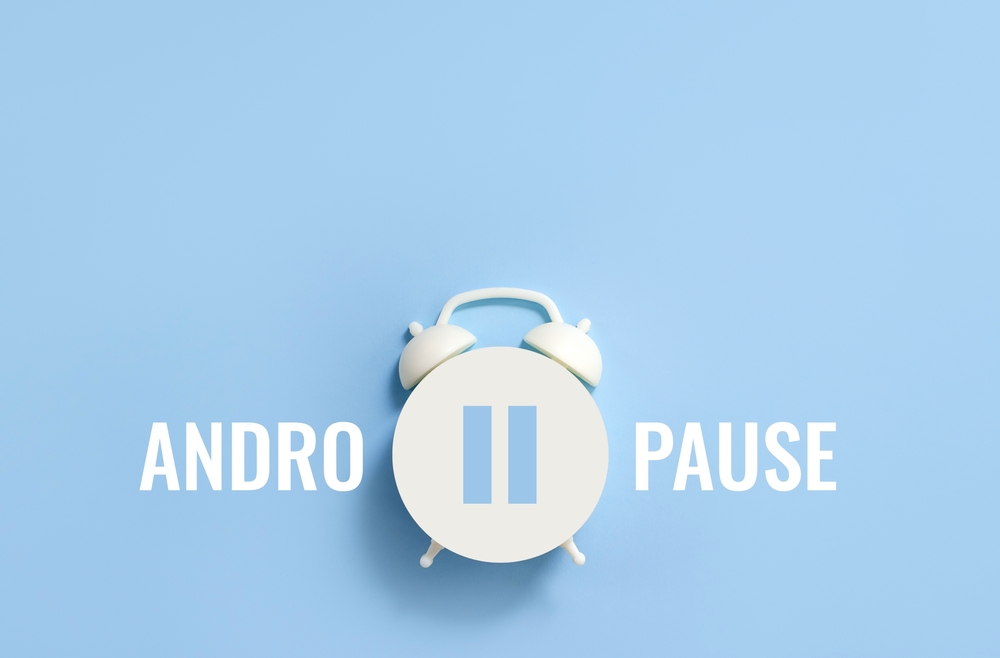Hormone Therapy for Andropause: Male Menopause Explained
When we think about hormonal changes in later life, menopause is usually the first thing that comes to mind—a well-known phase in a woman’s life marked by fluctuating hormones, mood changes, and physical symptoms. But men experience their own version of hormonal shifts as they age, known as andropause, often referred to as “male menopause.” Though not as widely recognized, andropause can cause a significant decline in testosterone levels, leading to a host of symptoms that affect not just physical health but mental and emotional well-being as well.
Understanding andropause and the role that hormone therapy plays in managing its symptoms is critical for men seeking to maintain vitality and health as they age. In this article, we’ll explore what andropause is, the symptoms associated with it, and how hormone therapy can help men regain control of their lives during this phase.
What Is Andropause?
Andropause, sometimes called “male menopause,” is a condition that typically affects men in their 40s to 60s, though it can occur earlier or later in life. It’s characterized by a gradual decline in testosterone levels, the primary male sex hormone responsible for regulating many aspects of a man’s physical and emotional health. Unlike menopause, which occurs relatively quickly in women, andropause is more of a slow burn—testosterone levels gradually decrease by about 1% each year after the age of 30.
While the process is gradual, the symptoms can be significant and affect many areas of a man’s life. Testosterone doesn’t just influence reproductive function; it also plays a role in maintaining muscle mass, bone density, mood regulation, and even cognitive function. As testosterone levels drop, men may experience a range of symptoms that are often brushed off as “just getting older,” but in reality, these changes may signal the onset of andropause.
Common Symptoms of Andropause
Because testosterone impacts so many systems in the body, the symptoms of andropause can be varied. Many men experiencing andropause report a combination of the following:
• Decreased Libido: A noticeable drop in sexual desire is one of the most common symptoms of andropause. Testosterone fuels sexual interest and activity, so when levels decline, men often experience a significant reduction in libido.• Erectile Dysfunction: Lower testosterone can also affect erectile function, making it more difficult to achieve or maintain an erection.
• Fatigue: Chronic tiredness and a general lack of energy are common complaints among men experiencing testosterone decline.
• Mood Changes: Irritability, anxiety, and even depression can set in as testosterone drops, which can disrupt a man’s sense of well-being.
• Decreased Muscle Mass and Strength: Testosterone is essential for muscle growth and maintenance. As levels decrease, men may find it harder to build or maintain muscle, leading to a loss of strength.
• Increased Body Fat: The balance between testosterone and estrogen becomes skewed during andropause, often leading to increased fat accumulation, particularly around the midsection.
• Sleep Disturbances: Insomnia or trouble staying asleep can be linked to declining testosterone levels, which disrupts a man’s ability to get restorative sleep.
• Cognitive Decline: Difficulty concentrating or memory issues can also arise during andropause, as testosterone plays a role in brain function.
These symptoms are not just inconvenient—they can significantly affect a man’s quality of life, relationships, and self-esteem. The good news is that andropause is a treatable condition, and hormone replacement therapy (HRT) can help alleviate many of these symptoms.
Hormone Therapy for Andropause: What You Need to Know
Testosterone replacement therapy (TRT) is the most common form of hormone therapy for men experiencing andropause. It works by replenishing the body’s natural testosterone levels, helping to restore balance and reduce the symptoms associated with its decline.
TRT can be administered in several forms, depending on a man’s preferences and health needs. These include:
• Injections: One of the most common forms of testosterone therapy, injections are typically administered every few weeks by a healthcare provider.
• Topical Gels or Creams: These are applied daily to the skin, allowing testosterone to be absorbed into the bloodstream.
• Patches: Similar to topical gels, testosterone patches are worn on the skin and provide a steady release of hormones.
• Pellets: Implanted under the skin, these pellets slowly release testosterone over a period of months.
The goal of testosterone replacement therapy is to bring testosterone levels back to a normal range, thereby alleviating the symptoms of andropause and improving overall quality of life.
Benefits of Hormone Therapy for Andropause
Men who undergo hormone therapy for andropause often report significant improvements in both their physical and emotional well-being. Let’s take a closer look at some of the key benefits:
1. Improved Sexual Function and Libido
One of the most immediate benefits of testosterone therapy is the restoration of sexual function and libido. Many men report a renewed interest in sexual activity, improved erectile function, and a more satisfying sex life overall. For men whose relationships have been impacted by the loss of libido, this can be a game changer.
2. Increased Energy Levels
Fatigue and a general lack of energy can make it difficult to get through the day, let alone stay active or pursue hobbies. Testosterone therapy can help reverse this by boosting energy levels, allowing men to feel more vibrant and engaged in life.
3. Better Mood and Emotional Stability
Mood swings, irritability, and depression are often linked to low testosterone levels. Restoring hormonal balance through testosterone therapy can help stabilize mood, reducing feelings of anxiety and depression, and improving overall emotional health.
4. Enhanced Muscle Mass and Strength
Testosterone plays a crucial role in maintaining muscle mass and strength. As levels rise with hormone therapy, many men notice a return of physical vitality, including the ability to build muscle more easily and increase overall strength.
5. Reduced Body Fat
In addition to helping build muscle, testosterone therapy can aid in reducing body fat. This is particularly important for men experiencing fat accumulation around their abdomen, which is often linked to an imbalance between testosterone and estrogen levels.
6. Improved Cognitive Function
Many men report a return of mental clarity and improved focus with testosterone therapy. Testosterone has been linked to cognitive function, and its replacement can help sharpen memory and concentration.
7. Better Sleep Quality
Testosterone therapy may also improve sleep patterns, reducing insomnia and helping men achieve more restful and restorative sleep.
Is Hormone Therapy Right for You?
While testosterone therapy offers a wide range of benefits, it’s not a one-size-fits-all solution. Deciding whether hormone therapy is right for you depends on a number of factors, including your current health status, symptoms, and long-term health goals. Here are a few things to consider when deciding whether testosterone therapy is the right option for managing your andropause symptoms.
1. Get Tested
The first step in determining whether you’re a candidate for hormone therapy is to get your testosterone levels tested. A simple blood test can reveal whether your testosterone is low and whether hormone therapy might be beneficial.
2. Evaluate Your Symptoms
Not all men with low testosterone experience symptoms of andropause. If your testosterone levels are slightly lower than average but you’re not experiencing symptoms like fatigue, low libido, or mood changes, you may not need hormone therapy. On the other hand, if these symptoms are interfering with your quality of life, it’s worth discussing your options with a healthcare provider.
3. Consider the Risks and Benefits
Like any medical treatment, testosterone therapy comes with both risks and benefits. While most men tolerate hormone therapy well, it’s important to be aware of potential side effects. These may include an increased risk of blood clots, sleep apnea, or prostate enlargement. However, the benefits—such as improved mood, energy levels, and sexual function—often outweigh the risks for many men.
4. Consult with a Specialist
If you’re considering hormone therapy for andropause, it’s essential to consult with a healthcare provider who specializes in hormone health. A specialist can provide a personalized treatment plan based on your individual needs and help you weigh the pros and cons of testosterone therapy.
Natural Approaches to Managing Andropause
While testosterone therapy is the most effective way to manage the symptoms of andropause, there are also lifestyle changes you can make to support your hormonal health. These include:
• Exercise Regularly: Physical activity, particularly strength training, can help boost testosterone levels naturally.
• Eat a Balanced Diet: A diet rich in healthy fats, lean proteins, and a variety of fruits and vegetables can support hormonal balance.
• Get Enough Sleep: Adequate rest is essential for maintaining healthy testosterone levels.
• Manage Stress: Chronic stress can cause testosterone levels to plummet, so incorporating stress-relieving activities like yoga, meditation, or hobbies can be beneficial.
Conclusion: Take Control of Your Health with Hormone Therapy
Andropause is a natural phase of life, but that doesn’t mean you have to suffer through it. Hormone therapy offers a powerful way to manage the symptoms of andropause, helping you feel more energized, emotionally balanced, and physically fit. Whether you’re struggling with low libido, fatigue, or mood swings, testosterone therapy may be the key to restoring your vitality and reclaiming your quality of life.
If you’re experiencing symptoms of andropause and want to explore hormone therapy as a solution, Aryze Well can help. Our team of specialists is dedicated to helping men navigate this phase of life with confidence and health. Contact Aryze Well today to schedule a consultation and take the first step toward feeling like yourself again.
Dr. Indea May is a seasoned healthcare professional with over 20 years of experience in nursing and holistic medicine. As the Clinical Director of Aryze Well, PLLC, she combines her expertise in functional medicine, bioidentical hormone replacement therapy (BHRT), medical weight loss, gut health restoration, and IV hydration to provide integrative and personalized care. Read More: https://aryzewell.com/meet-dr-indea-may/
- Indea May



